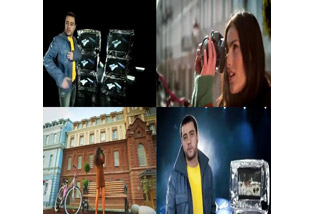Nino Tsagareishvili
By the support of International Foundation for Electoral Systems (IFES), Human Rights Center is carrying out project Media Monitoring of Coverage of Parliamentary Elections. Within the framework of the project, Human Rights Center will monitor surreptitious political, social and paid political advertisements on following TV channels: Public Broadcaster, Imedi, Rustavi 2, Kavkasia, Maestro and 9th Channel.
The goal of media monitoring is to reveal the tendencies of media coverage of election campaign and elaborate recommendations to improve election environment.
The Georgian Election Code does not include any definition of surreptitious political advertisements and existing regulations are not enough to prevent such advertisements. The regulations presented in Election Code of Georgia, Law on Broadcasting and Law on Advertising do not set sufficient guarantees for avoiding such commercials.
Recommendation No. R (99) 15 of the Council of Europe’s Committee of Ministers on Measures Concerning Media Coverage of Election Campaigns adopted by Georgia in 1999 touches on the issues of surreptitious political advertising during the election and pre-election campaign.
According to this recommendation: “where self-regulation does not provide for this, member States should adopt measures whereby public and private broadcasters, during the election period, should in particular be fair, balanced and impartial in their news and current affairs programs, including discussion programs such as interviews or debates.”
The explanatory memorandum to the Recommendations goes on to state: “A problem that sometimes arises related to the news coverage of a campaign is that incumbent government officials, that is, candidates already occupying official positions, may attempt to gain undue advantage through additional news coverage of their official functions. The Recommendation therefore stresses that no privileged treatment should be given to public authorities during such programs.”
As for entertainment programs, according to the Committee’s Recommendations, broadcasters should restrain from inviting politicians to entertainment programs and similar talk-shows since it would put them at an unfair advantage over other candidates. The same is said regarding parody programs.
The Committee of Ministers states that these principles should primarily be addressed via self-regulatory measures. If not, the Committee calls on the member states to reflect them in relevant legislative provisions.
According to the Recommendations, these principles should apply both to the official electoral as well as pre-electoral period.
Although these Recommendations do not explicitly mention the term surreptitious political advertisement, their content implies inadmissibility of such advertisements.
The Ethics Code of Broadcasters of Georgia which offers guiding principles for Georgian broadcasters and enables them to abide by these principles through self-regulatory mechanisms does not envisage the above-mentioned recommendations.
Monitors of Human Rights Center will apply definition of NGO coalition This Affects Too to reveal secret political advertisement.
As for the definition of social advertisement, according to law, social advertisement must not include “advertisement of legal entity of government department or the service rendered by them.” However, Georgian legislation does not ascribe local government bodies and legal entities of public law created according to the law to this category. Therefore, this restriction does not apply to them.
According to the research of TI Georgia conducted in February of 2012, the video clips shown on different Georgian TV channels such as advertisement on increase of pension, advertisement on reform of education, Rose Revolution 8 years, “We are building house” and “I love Tbilisi.” Organization states that the advertisement regarding the increase of pension is very much like pre-election political advertisement where the President gives promises of increase of pension. As for the advertisements regarding education reform and 8th anniversary of Rose Revolution, organization states that since they talk about past successes and services of Georgian government, they explicitly pass the boundaries of definition of social advertisement.
As for the social advertisements “We are building House” and “I love Tbilisi,” organization states that though these advertisements do not explicitly advertise the services of Georgian government or other public institutions, the video scenes and phrases explicitly refer to the achievements associated with Georgian government. Therefore, organization notes that it is very hard to ascribe these advertisements to category of “advertisement which promotes public good and causes of charity.”
One more type of advertisement monitored by Human Rights Center will be paid political advertisement. Its monitoring will be carried out during official election period. The results of the first phase of the monitoring will be disclosed at the end of July.

This article is made possible by the support of the American people through the United States Agency for International Development (USAID). The contents are the sole responsibility of Human Rights Center and do not necessarily reflect the views of the International Foundation for Electoral Systems, USAID or the United States Government.




